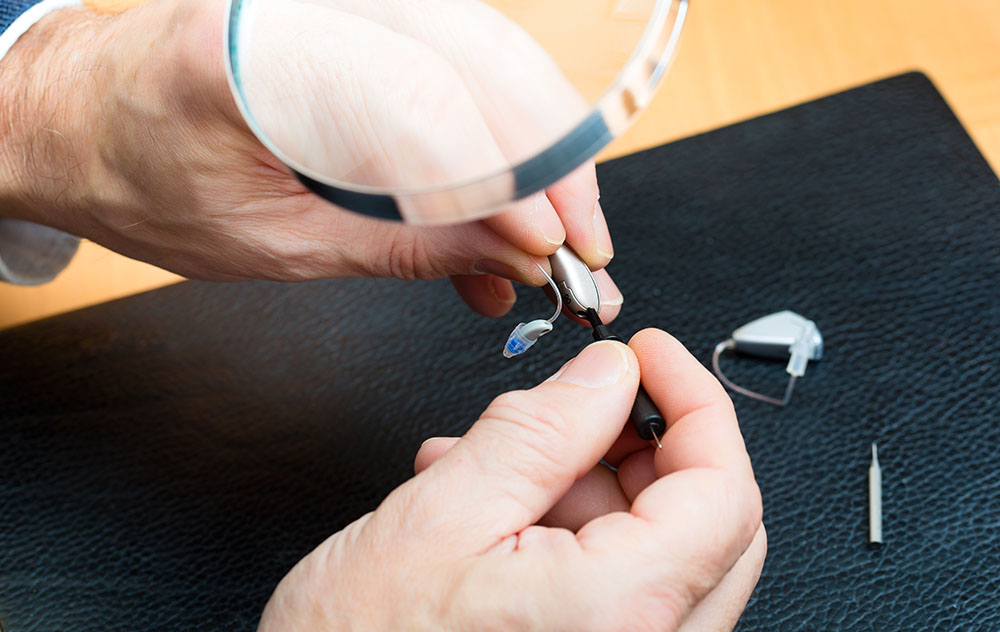
Understanding Hearing Aid Repairs
Even hearing aid users who take proper care of their aids will occasionally find their device is in need of a professional repair. Hearing aid technology is built to be enduring, but it will not last forever. In the event that you notice a decline in your hearing aid’s performance, or it stops working altogether, you should contact your hearing care professional immediately. So, what might happen if your hearing aid does need repairs?
In-house repairs
Repairs do not necessarily mean that you will be stuck without a device for an extended period of time. On the contrary, many minor repairs can be conducted by your hearing provider in-house, meaning you could even get your hearing aid back the same day. If your device is simply not working as well as it once was, the likelihood is that a professional deep clean may be enough to restore it to its former glory.
Remember too that our ears will change shape over time and a poor fit can result in whistling or feedback. If you have had your hearing aids for a few years, it could be that they simply need to be re-fitted.
You may find that your hearing care professional also conducts minor physical repairs to your device in their office, without sending the device back to the manufacturer. For example, they may be able to replace tubing, earbuds and battery compartment doors; these repairs may even be covered by your warranty! It is important to remember that a problem left unaddressed could worsen over time, so get in touch with your hearing specialist right away if you think your device might need to be fixed.
Manufacturer repairs
There are a few occasions that may require your hearing aid being sent back to the manufacturer. For instance, if an inner component needs to be replaced that your hearing care provider may not have in-office; or if a complex technical issue is present. Your hearing professional may need to send the device back to the manufacturer for repairs, if resolving the problem would involve taking the device apart.
Unfortunately, this can sometimes mean you will be without your hearing aid for a number of weeks. You hearing care provider will consider this and may offer you different options to accommodate this.
It is important to be aware that you may be told there is nothing the manufacturer can do for your device if it is an older model and the parts are no longer in production. You may also want to consider purchasing new hearing aids if the warranty on your device has expired – as repairs can be expensive. If this happens to you, it could be a blessing in disguise; if your device is a few years old the chances are that there are now newer, more advanced models available which may be even better suited to dealing with your hearing requirements.

